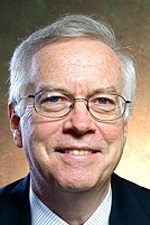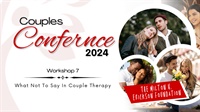CC24 Workshop 07 - What Not To Say In Couple Therapy - William Doherty, PhD
- Average Rating:
- Not yet rated
- Topic Areas:
- Workshops | Couples Therapy | Ethical Practice | Therapist Development
- Bundle(s):
- 2024 Couples Conference Bundle
- Categories:
- Couples Conference | Couples Conference 2024 | Pioneers in Couples and Family Therapy
- Faculty:
- William Doherty, PhD
- Course Levels:
- Master Degree or Higher in Health-Related Field
- Duration:
- 1:47:03
- Format:
- Audio and Video
- Original Program Date:
- May 04, 2024
- License:
- Never Expires.
Description
Description: Although nowadays we have great models of couple therapy, therapists can become pessimistic in working with difficult couples—and inadvertently send messages that undermine their relationships. Based on a new research study with clients who have been in couple therapy, this presentation will describe things to generally avoid saying to couples about their relationship and its prospects for repair. The workshop will offer a mindset for staying positive with couples and a set of skills for handling therapeutic impasses without resorting to making comments that undermine the therapy and the couple relationship.
Learning Objectives:
- Identify therapist comments in couple therapy that are associated with poorer outcomes.
- Discuss why these comments are generally not productive and an be harmful.
- Describe ways to maintain a positive mindset with challenging couples and deal with therapeutic impasses in a constructive way.
Credits
Handouts
| Timestamped Transcript (1.4 MB) | 39 Pages | Available after Purchase |
Faculty

William Doherty, PhD Related Seminars and Products
William J. Doherty is an educator, researcher, therapist, speaker, author, consultant, and community organizer. He is Professor and Director of the Marriage and Family Therapy Program in the Department of Family Social Science, College of Education and Human Development, at the University of Minnesota, where he is also an adjunct Professor in the Department of Family Medicine and Community Health.


